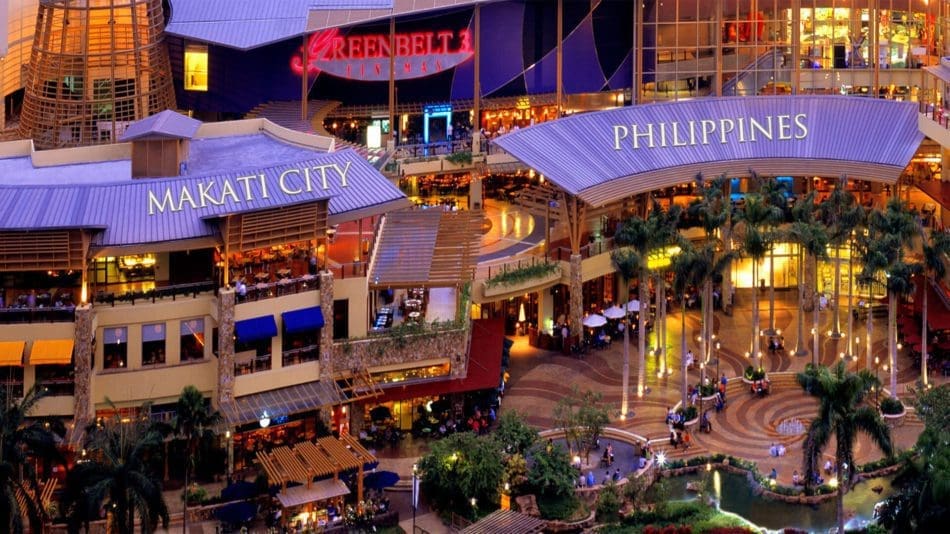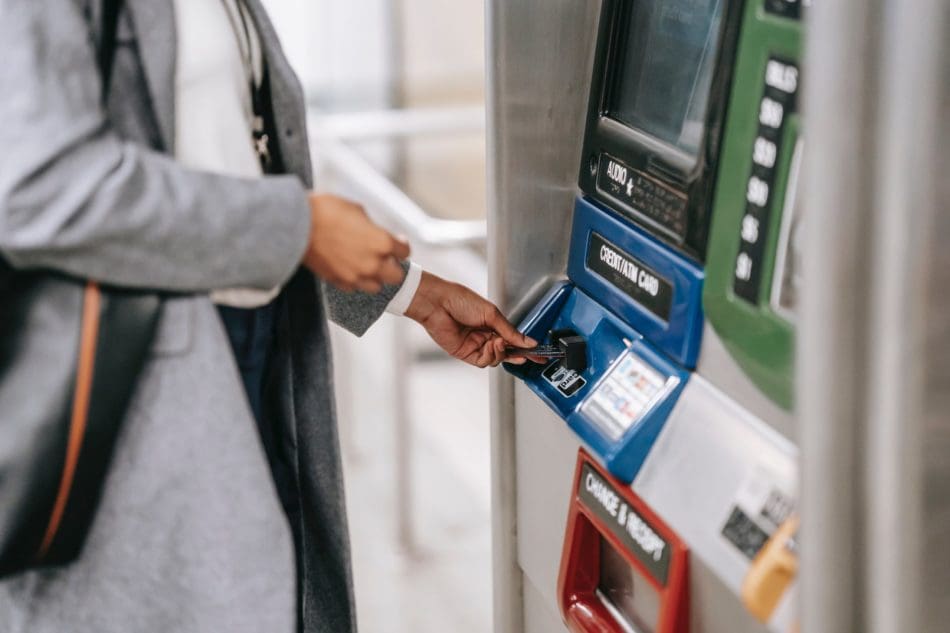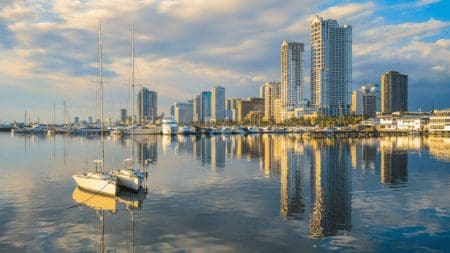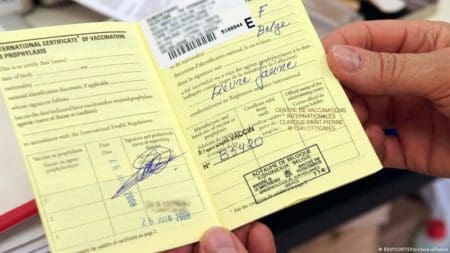More and more foreigners are now becoming interested in buying property in the Philippines because of many factors like our tropical climate, the warmth of the Filipinos, and great opportunities for investments. On the other hand, many people are still not sure whether foreigners can own property in the country. Are you one of those foreigners interested in buying property in the Philippines? If your answer is yes, continue reading to learn more.
However, not all are opting to go for temporary accommodations since many have already decided to stay here for the long term. So, how do Philippine laws approach foreign ownership?
The Philippines is one of the most dynamic economies in the East Asia Pacific region. With increasing urbanization, a growing middle class, and a large and young population, the Philippines’ economic dynamism is rooted in strong consumer demand supported by a vibrant labor market and robust remittances. Business activities are buoyant with notable performance in the services sector including business process outsourcing, real estate, tourism, and finance and insurance industries.
Real economic growth, however, has been challenged by the COVID-19 (coronavirus) pandemic and the strict community quarantine measures imposed in the country. But
Economic growth is expected to rebound gradually in 2021-2022 assuming a containment of the virus domestically and globally, and with more robust domestic activity bolstered by greater consumer and business confidence and the public investment momentum.
In recent years and until the onset of the COVID-19 crisis, the Philippine economy has made progress in delivering inclusive growth, evidenced by a decline in poverty rates and its Gini coefficient. Poverty declined from 23.3% in 2015 to 16.6% in 2018 while the Gini coefficient declined from 44.9 to 42.7 over the same period. This increasing trend in real wages, which is expected to have a positive impact on household incomes—particularly those from the lower income groups—has been hampered by the impact of the COVID-19, with negative consequences also for poverty reduction in the Philippines. Resuming growth can hope to reverse this negative impact again.
Land-ownership in the Philippines is strictly regulated and is restricted to persons/entities legally designated as Filipino citizens. A corporation with 60% Filipinos on the board is considered to be a Filipino national. Additionally, the Anti-Dummy Law also places several restrictions on land ownership by foreigners.
What is Anti-Dummy Law?
The Anti-Dummy Law is a law created to penalize those who violate foreign equity restrictions and evade nationalization laws of the Philippines. It prohibits dummy or using what I call a proxy arrangement to accomplish a transaction not allowed under Philippine law.
To get around the Philippine land ownership rules, for example, non-citizens may arrange for a Filipino citizen to purchase land and register the land title to the Filipino citizen’s name, but with the agreement that the whole right to the land belongs to the foreigner. In this case, the Filipino citizen is the “proxy,” thus the “dummy arrangement.” Another common approach is to create a corporation. The problem with using a corporation to avoid the land restrictions rules is the 40-60 ratio that applies (40% foreign ownership, 60% Filipino ownership). Therefore a variety of side agreements are used to keep control of the corporation in the hands of the foreigner.
ALSO READ: Dual Citizenship in the Philippines: Helpful Tips and Guides
Again, The Anti-Dummy Law prohibits an arrangement usually done by a foreigner to evade nationality restrictions. If you’re caught violating the Anti-Dummy Law, you can receive a jail sentence for up to 5-15 years or receive a hefty fine. Non-Citizens and Filipino citizens who engaged in the dummy arrangement will both be held liable.
The anti- dummy rules are not being enforced. However, the law is on the books for a reason. Therefore, this does not mean that the law will be enforced in the future. Should this happen, and you run afoul of the Anti- Dummy Law, it is you, not your attorney or friends that told you that it is okay to violate Philippine law, who is on the legal hook.
This is only a limited overview of the broad-reaching Anti- Dummy Law. If you are setting up a business or acquiring real property in the Philippines, you need to be aware of how the anti-dummy rules may be applied to the way the transaction is being structured. If you don’t want your dream business or property investment in the Philippines to turn into a legal nightmare.

There has been a long-standing debate whether Philippine laws should be changed to accommodate and expand foreign ownership in the country. Most of the advocates of the proposal are arguing that lifting the restrictions on foreign ownership would eventually result in more investments from overseas. However, those who are against it would dispute such claims stating that business ventures from foreign investors are not dependent on property ownership and invoke the importance of national patrimony.
Given the mentioned restrictions on foreign ownership of land, do you think it is enough to preserve our national patrimony? And given that some of our neighboring countries opened up and allowed foreigners to own land in their territory, do you think that the Philippines should do the same?
Buying property in the Philippines as a Foreigner
Foreigners are prohibited from owning land in the Philippines, but can legally own a residence. However, foreigners can purchase condos/apartments/villas, industrial/commercial buildings without having rights on the land, with certain exceptions:
- If acquired before 1935.
- If a foreigner inherits through natural succession or legal heirship.
- Acquires less than 40% in a condo project.
- Valid Filipino citizens married to foreigners.
- Former natural-born citizens (limited extent).
They can also enter into a long-term lease on the land, with rights of use. But I wouldn’t recommend that.
What’s the property market like in the Philippines?
The Philippines has become one of the hotspots for foreign property buyers in Southeast Asia. With favorable demographics and an increasing middle class, Metro Manila has undoubtedly seen the biggest interest. But COVID-19 had a profound impact on real estate markets all over the world and the Philippines was not an exception.
The property market took a big hit due to the COVID-19 crisis which resulted in diminished tourist arrivals, travel restrictions, reduced OFW remittance inflows, unemployment, and business consumer confidence.
The Philippines experienced the worst economic downturn in 30 years and with prices that fell by double digits. However, there might be an upswing this year due to an increased interest among Chinese investors, and will most likely be in recovery mode from this year 2021 onwards.
While prices have dropped by double digits, we also see reduced lease rates and take-up rates. Yields are some of the highest in the region and a favorable business and visa regulations. You have the option to apply for plenty of long-term visas, allowing you to stay indefinitely, with low requirements.
ALSO READ: 2021 Philippines Travel Guide for Foreigners: Resourceful Info

How do I choose the right property?
Property types
The Philippines has a well-developed real estate sector with a wide choice of apartments, condos, and houses. Foreigners can buy condos, as long as the ownership of the block is still majority local, but it’s harder to own land as a foreigner in the Philippines. Naturally, you’ll find a good stock of flats and condos available in built-up areas and cities, especially.
You can also lease land on a long-term lease, and build a home. However, if you want to build your dream home yourself, you should talk to your lawyers about how this could be achieved.
Location, Location, Location
One of the main things about moving abroad is which part of your destination country you’ll call home. There are a lot of factors to consider before you make that trek. Do you want to be close to all the hustle and bustle of a lot of living abroad? Or do you truly want to leave it all behind and live without any hassles?
Condition of the property
It’s a smart idea, though not required by law, to get a survey done on any property you choose, or any land you decide to lease before you commit. This isn’t necessarily standard practice, so you should ask your lawyer about how to find a local surveyor you can trust.
Steps to buying a property as a foreigner?
Buying property in the Philippines can feel quite different from buying a home in Europe or North America. Foreign buyers are subject to restrictions, and the market is less regulated. It’s essential that you get the right, qualified local help to ensure that the property you’re buying is being sold legally.
You’ll need to:
- Decide which mortgages might suit you, and get an offer in principle so you have a budget in mind
- Find the property you want to buy, using a local, reputable sales agent
- Make an offer the seller agrees to
- Have a local qualified lawyer create a Deed of the Sale contract
- Go back to the bank and finalize the mortgage, make any agreed deposit payment
- Sign the Deed of the Sale contract, along with the seller in the presence of the notary
- Your lawyer will help you register the property transfer, which will mean you have to pay the transfer tax as well as any other outstanding taxes or fees
Buy Through a Company
Corporations can own land in the Philippines, provided Filipino citizens own 60% or more of the company—the rest can be owned by a foreign partner or partners. Corporations that meet this equity stake requirement must be registered with the government Board of Investment (BOI) for permission to buy, sell or act as an intermediary in a real estate transaction.
As a foreigner, the largest piece of residential land you can own, either with your Filipino spouse or through a corporation, is 1,000 square meters of urban land—just under a quarter acre—or one hectare or about 2.5 acres of rural land.
How to get a bank loan/mortgage?
If you want to buy a home in the Philippines, you’ll need to either have the cash saved upfront to buy it outright or have access to financing. If you’re considering getting a mortgage through a bank in the Philippines, you should know that not all banks are able to offer mortgage facilities to foreigners. You might benefit from having some local help – often your real estate agent will also know which local banks are best to approach for a mortgage.
Whether or not you’re eligible will depend on your visa type and personal circumstances. However, some local banks do offer mortgages to ex-pats under some conditions. It’s also worth checking if your home bank has a presence in the Philippines.
Deposits / Down payments
You’re likely to be asked to pay a deposit of 10 to 30% of the purchase price. If you’re not yet in the Philippines, you might have to pay your deposit from abroad with an international money transfer to cover the deposit amount. If you’re transferring a large amount of money across currencies, it’s important you get the best deal available.
Easier ways to pay
- Getting a loan has become much simpler and swifter. Go to a bank or brokerage service that matches your needs and preferences. Discuss your eligibility to get a loan with the bank officials and get details of the conditions to be fulfilled.
- Provide all the necessary documents along with their loan applications. It’s wise to hire a qualified broker who can handle the paperwork.
- BDO Bank offers mortgages to foreigners/ex-pats with certain types of visas.
- Metrobank provides bank loans to foreigners with requisite visas.
- BPI Bank provides mortgage loans to ex-pats with required visas or is married to Filipinos.
As a foreigner, you’ll have to provide a little extra documentation to back up your loan application, including your ACR certificate, and your visa. However, aside from this, the requirements are fairly straightforward and similar to the process used for local applicants.
Paperwork (documentation)
The exact documents you’ll need will depend on the bank you use. However, you can expect to be asked for the following:
- Alien Certificate of Registration (ACR)
- Copies of your personal identification documents (passport), including your visa type and validity
- Proof of legal residence in the Philippines
- Documents to support your application and prove you have enough money to service the loan (usually a certificate of employment, proof of your wages, or a letter from your employer)
- Depending on the language they’re issued in, you might find that your paperwork will have to be translated by a sworn translator in order for the bank to accept it.
ALSO READ: WARNING! 10 Tagalog Words That Can Get You In Trouble
Mortage process in the Philippines
To get a mortgage in the Philippines, you’ll generally need to follow these steps:
- Find a broker who can help you explore your options for a mortgage
Choose a bank that offers a mortgage that suits your needs - Provide the paperwork requested and get an offer in principle. In some cases, you’ll be able to submit your application and supporting materials online
- Find a home you love and agree on a purchase price with the seller
- Finalise your mortgage through your chosen broker
- A deposit of 20% is usually required to secure your purchase
- Your notary will guide you through the steps required to transfer ownership of the property legally
- Your broker will help you finalize the remaining 80% payment, and you’ll be responsible for servicing the mortgage and paying any outstanding fees
Transaction Fees
Real estate transactions always involve more than just the price tag. If you buy property in the Philippines, you can expect to pay several fees, including:
- Capital Gains Tax: 6% of the residence’s sales price, zonal value, or fair market value, whichever is highest. This is normally paid by the seller, but in some instances the buyer pays it, or it ends up rolled into the sales price.7
- Documentary Stamp Tax: 1.5% of the sales price, zonal value, or fair market value, whichever is highest.
- Transfer Tax: 0.5% to 0.75% of the sales price, zonal value, or fair market value, whichever is highest—depending on where the property is situated.
- Title Registration Fee: This varies according to a published registration fee table; generally around 0.25% of the sales price.
Tips Before Buying Property in the Philippines
- Make sure the “Transfer Certificate of Title” is authentic. The easiest way to check if the title to the property you are buying is authentic is by getting a “Certified True Copy” of the title from the Register of Deeds. This office is usually located at the city or municipal hall where the property is located. Ask the seller of the property for a photocopy of the title -you will need the title number and the name of the owner to get a certified true copy of the title from the Register of Deeds.
- Verify that title is clean – meaning the property is not mortgaged (no liens & encumbrances on the property). You can see that at the back of the title with the heading “Encumbrances”. This page must be empty if you are told that the title is “clean”. But sometimes the space for the technical description of the property on the front page of the title is not enough and the description of the property is continued on the “Encumbrances” page, this is of course all right.
- Make sure that the land described in the title is really the land that you are buying. You can validate this at the Register of Deeds or by hiring a private land surveyor or a geodetic engineer. Land titles don’t have any street name and number to pinpoint a property, it is a must to confirm that the actual property you are buying matches the technical description on the Transfer Certificate of Title.
- Make sure that the sellers are the real owners. If you are buying from an individual property owner, ask for identification papers like a passport or driver’s license, it is also a good idea to talk to the neighbors or the Barangay Captain to confirm the identity of the sellers (you might as well ask some history of the property).
- Confirm that the yearly real estate taxes are paid. Ask for certified true copies of the Tax Declaration and original Tax Receipts to confirm that real estate tax payments are up to date.
ALSO READ: How to Convert a Foreign Driver’s License in the Philippines
Can a foreigner inherit property in the Philippines?
Yes, a foreigner can inherit property in the Philippines. It is the 1987 Philippine Constitution itself that grants this authority, particularly Section 7 of Article XII on National Economy and Patrimony. Note however that the inheritance must not be made through testate succession or through a living will. Otherwise, what has been expressly prohibited by Constitutional law can be circumvented through a mere will. The inheritance contemplated in this case is intestate succession only or when a Filipino citizen owning the property passes away without leaving a will.
One of the most important things you’ll have to consider in the Philippines—or anywhere abroad for that matter—is your safety. Just like anywhere in the world, property prices vary greatly in the Philippines, depending on location, size, condition, and features. When purchasing a home overseas, conduct the transaction in a way that will protect your property rights.
Real estate agents fees are paid by the seller and can hit 3 to 5%. There’s also a substantial capital gains tax, which the seller must pay, in the region of 6% of the selling price.
Buying a property is a big and exciting step, but navigating the system in a new country can be a challenge. Luckily, buying your dream home in the Philippines should be fairly straightforward if you follow these steps, and source the right local help if you need it.
Good luck with finding, buying, and settling into your new home in the Philippines.

















Fran Candelera I just like the helpful information you provide in your articles
Hello my loved one I want to say that this post is amazing great written and include almost all significant infos I would like to look extra posts like this
Your article helped me a lot, is there any more related content? Thanks!
Whoa! This blog looks just like my old one! It’s on a completely different topic but it has
pretty much the same layout and design. Great choice of colors!
This is top-notch! This information is a perfect match for my needs.https://brainboost.blog/
You’ve hit a home run! Spot on for my research goals. https://brainboost.blog/
I’m really enjoying the design and layout of your blog.
It’s a very easy on the eyes which makes it much more enjoyable for me to come here and visit more often. Did you hire out a designer
to create your theme? Outstanding work! I saw similar here:
najlepszy sklep and
also here: e-commerce
Wow, amazing blog structure! How long have you ever been running a blog for?
you make running a blog look easy. The overall glance of your
website is wonderful, let alone the content! You can see similar: sklep online and here sklep internetowy
This entrance is unbelievable. The splendid information displays the proprietor’s commitment. I’m overwhelmed and envision more such astounding sections.
5807a8
Мадонна, икона поп-музыки и культурного влияния, продолжает вдохновлять и поражать своей музыкой и стилем. Её карьера олицетворяет смелость, инновации и постоянное стремление к самовыражению. Среди её лучших песен можно выделить “Like a Prayer”, “Vogue”, “Material Girl”, “Into the Groove” и “Hung Up”. Эти треки не только доминировали на музыкальных чартах, но и оставили неизгладимый след в культурной и исторической панораме музыки. Мадонна не только певица, но и икона стиля, актриса и предприниматель, чье влияние простирается далеко за рамки музыкальной индустрии. Скачать mp3 музыку 2024 года и слушать онлайн бесплатно.
I agree with everything you’ve said in your post; it’s clear that they’re all very persuasive and will work. Nevertheless, the posts are too short for newcomers; could you maybe make them a little longer the next time? I’m grateful for the post.
What i do not understood is in truth how you are not actually a lot more smartlyliked than you may be now You are very intelligent You realize therefore significantly in the case of this topic produced me individually imagine it from numerous numerous angles Its like men and women dont seem to be fascinated until it is one thing to do with Woman gaga Your own stuffs nice All the time care for it up